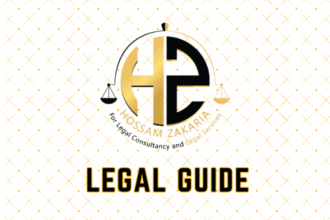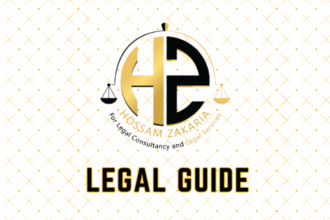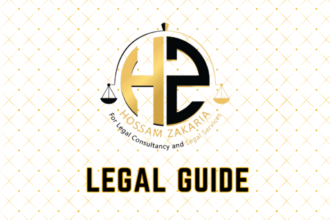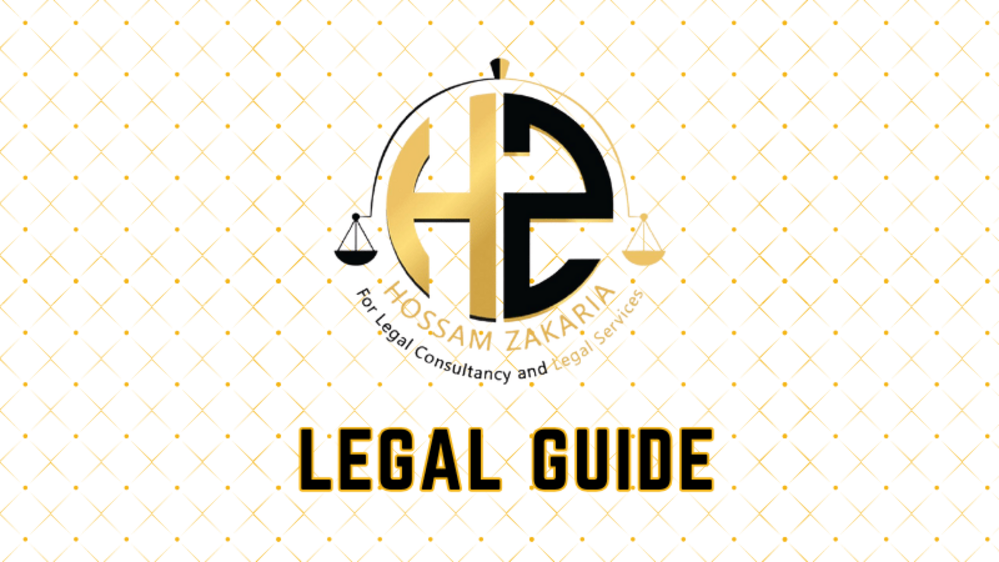Introduction
In an era marked by international commerce and cross-border financial transactions, UAE-based businesses increasingly conduct operations in neighboring Saudi Arabia. With the rising interconnectedness, issues such as bank account freezing and seizure have gained increased prominence in both legal advisory and compliance agendas. Recent legal updates and intensifying regulatory cooperation between the UAE and Saudi authorities have made it imperative for executives, compliance officers, HR managers, and legal practitioners to comprehend the nuanced landscape of bank account restrictions affecting UAE entities with interests or subsidiaries in Saudi Arabia. This article provides an in-depth, consultancy-grade analysis rooted in verified sources such as the UAE Ministry of Justice, Ministry of Human Resources and Emiratisation, and official government portals to ensure businesses remain on the right side of the law—while safeguarding operational continuity and reputation.
The rules and mechanisms governing the freezing or seizure of business bank accounts are complex, arising from local statutes, cross-border mutual legal assistance treaties (MLATs), and evolving compliance norms addressing issues from financial crime to tax enforcement. Misunderstanding or non-compliance can have significant operational, financial, and reputational consequences. Understanding both the established and new rules—including those shaped by Federal Decree-Law No. (20) of 2018 on Anti-Money Laundering and Combating the Financing of Terrorism and Financing of Illegal Organizations as amended and the Federal Law No. (14) of 2018 Regarding the Central Bank & Organization of Financial Institutions and Activities—is critical for staying compliant and business ready.
This expert legal briefing breaks down these rules, draws out the practical considerations, and provides actionable recommendations for UAE firms with, or contemplating, operational footprints in Saudi Arabia.
Table of Contents
- Understanding the Regulatory Framework
- Authority to Freeze or Seize Accounts
- Freezing and Seizure Process: Step-by-Step Analysis
- Cross-Border Enforcement: The Saudi-UAE Context
- Recent Legal Updates and Compliance Shifts
- Comparison: Old vs New Legal Framework
- Case Studies and Hypothetical Scenarios
- Risks of Non-Compliance and Legal Exposure
- Best Practice Strategies for Legal Compliance
- Conclusion and Forward Outlook
Understanding the Regulatory Framework
Overview of UAE Law on Freezing and Seizure
The UAE legal system empowers authorities to freeze or seize bank accounts in certain prescribed situations. These powers are built upon a foundation of domestic laws and are increasingly aligned with international financial crime prevention frameworks. Key legislations and guidelines include:
- Federal Decree-Law No. (20) of 2018 (Anti-Money Laundering and Combating the Financing of Terrorism)
- Federal Law No. (14) of 2018 (Concerning the Central Bank and Organization of Financial Institutions and Activities)
- UAE Cabinet Resolution No. (10) of 2019 (Implementing Regulation of Decree-Law No. 20/2018)
- Relevant circulars from the UAE Central Bank
Broadly, commercial bank accounts of UAE businesses may be frozen or seized for reasons including suspicion of money laundering, tax-related investigations, enforcement of judgments, bankruptcy proceedings, or international mutual legal assistance requests. For cross-border operations—such as UAE corporations trading in or holding accounts in Saudi Arabia—the interplay between UAE law, Saudi regulatory frameworks, and bilateral agreements is critical.
Key Provisions with Impact on Business
- Article 12 of Decree-Law No. (20) of 2018 grants public prosecution and competent judicial authorities the power to order the temporary freezing or seizure of assets suspected of being linked to money laundering or terrorism financing.
- Article 7 of Federal Law No. (14) of 2018 directs the UAE Central Bank to issue binding circulars to financial institutions regarding account restrictions during investigations.
Reference to Saudi Laws and Mutual Recognition
When operating in Saudi Arabia, UAE businesses must also be mindful of Saudi-specific regulations:
- Saudi Anti-Money Laundering Law (Royal Decree No. M/20 of 5/2/1439 AH)
- Banking Control Law (Royal Decree No. M/5 of 22/2/1386 AH)
The control and freezing of accounts may be amplified where UAE-Saudi mutual legal assistance treaties or bilateral regulatory MOU frameworks come into play. Both countries have demonstrated increased alignment under the Gulf Cooperation Council’s (GCC) agenda to combat financial crime.
Authority to Freeze or Seize Accounts
Judicial and Executive Powers in the UAE
The authority to freeze or seize accounts lies with specific agencies as prescribed by UAE law:
| Authority | Legal Basis | Scope of Power |
|---|---|---|
| Public Prosecution | Federal Decree-Law No. 20/2018 (Art. 12) | Freeze/seize suspected accounts pre/post investigation |
| UAE Central Bank | Federal Law No. 14/2018 (Art. 7) | Instructs financial institutions to execute freezes/seizures |
| Judiciary | Civil Procedure Code, Penal Code | Authorizes enforcement of UAE and recognized foreign judgments |
Saudi Regulatory Agencies
For accounts in Saudi Arabia (or Saudi subsidiaries of UAE companies):
- Saudi Public Prosecution: Can order asset freezes under financial crime investigations.
- Saudi Central Bank (SAMA): Issues directives to commercial banks to implement freezes or respond to cross-border legal requests.
International and GCC Cooperation
The Mutual Legal Assistance Treaty (MLAT) framework within the GCC, including the UAE-Saudi relationship, permits cross-recognition and enforcement of asset freezing orders relating to serious financial crimes, as outlined in the “Riyadh Arab Convention on Judicial Cooperation” (1983) and the more recent cooperation mechanisms under the FATF recommendations adopted by both countries.
Freezing and Seizure Process: Step-by-Step Analysis
1. Triggering Event
Any of the following can prompt a freezing order:
- Suspicion or investigation relating to money laundering, terrorism financing, or financial crime
- Pending criminal or civil litigation with risk of asset dissipation
- Enforcement of tax obligations or foreign judgments
2. Initiating Authority and Legal Procedures
Typically, an authority—such as police, public prosecution, or a regulatory agency—petitions the court or directly instructs the bank to freeze particular accounts. The relevant legal provision is cited in the order, and the bank is bound to comply immediately.
3. Notification and Duration
Once frozen, the account holder (business or individual) must be notified using the registered contact information. The freeze generally remains pending the outcome of the investigation or judicial process, or until a court issues a lifting order.
4. Challenging a Freeze Order
Companies have the right to contest or petition the lifting of the freeze, especially in case of business necessity or demonstrable lack of wrongdoing. This is typically done via application to the investigative authority or the competent court, supported by legal affidavits and evidence.
Suggested Visual: Account Freezing Process Flow Diagram
Insert diagram to illustrate the freeze process from trigger to challenge and final court decision.
Cross-Border Enforcement: The Saudi-UAE Context
With the UAE’s sustained efforts to align with international standards—spurred significantly by the Financial Action Task Force (FATF) reviews—there have been notable regulatory developments in 2024–2025 that directly or indirectly affect account freezing and seizure:
- Impact of Federal Decree-Law No. (26) of 2021: Amended provisions clarify bank responsibilities during freeze orders, requiring more proactive monitoring, periodic reporting, and compliance documentation.
- Amended Cabinet Resolution No. (74) of 2020: Expands the definition of “beneficial ownership” and compels all legal entities to disclose ultimate beneficial owners (UBOs), thus improving enforcement efficacy when pursuing asset freezes related to UBOs.
- Strengthened cooperation via the UAE-Saudi High-Level Joint Committee: Ongoing initiatives simplify cross-border asset freezing protocols and streamline legal assistance workflows, increasing the likelihood of parallel actions in both jurisdictions.
Official Source References
- Ministry of Justice: moj.gov.ae
- Tamkeen Portal (Central Bank): centralbank.ae
- Federal Legal Gazette: Official publication site
Comparison: Old vs New Legal Framework for Account Freeze/Seizure
| Aspect | Pre-2020 Practice | 2024–2025 Practice (Post-Decree Updates) |
|---|---|---|
| Trigger Threshold | Higher threshold (direct evidence required) | Lowered to include reasonable suspicion, especially in AML/CTF matters |
| Reciprocal Enforcement | Sporadic, ad-hoc recognition of Gulf freeze orders | Streamlined MLAT/GCC protocols, expedited recognition for financial crimes |
| Disclosure Requirements | Limited UBO obligations, basic customer verification | Comprehensive UBO disclosure, enhanced KYC/AML due diligence |
| Duration of Freeze | Generally indefinite until court judgment | Imposed statutory review periods, periodic reassessment, appeals process improved |
Suggested Visual: Penalty Comparison Chart
Insert a bar chart illustrating the increase in fines and penalties before and after the 2024 updates for non-compliance by businesses.
Case Studies and Hypothetical Scenarios
Case Study 1: UAE Trading Company with Active Saudi Client Accounts
Scenario: A UAE-based trading company, with a registered commercial presence in Saudi Arabia, faces a freeze on its business account after a suspicion of irregular cross-border transfer volumes is flagged by the Central Bank of the UAE (CBUAE). Following a request by the Public Prosecution, both UAE and Saudi accounts are frozen pending investigation under Federal Decree-Law No. 20/2018 and Saudi AML law.
Consultancy Analysis
- The company’s inability to access funds disrupts payroll and supplier settlements, prompting notification to clients and creditors.
- To expedite review and challenge the freeze, the company provides full disclosure of transfer documents and opens internal investigation logs, supported by independent legal counsel.
- It also proactively communicates with both UAE and Saudi authorities, emphasizing its internal control mechanisms and compliance history. Early engagement and transparency accelerate the partial lifting of the freeze for operational costs.
Case Study 2: Non-compliance with UBO Disclosure
Scenario: An SME in Dubai is found to lack complete and updated beneficial ownership records, resulting in a regulatory freeze under Cabinet Resolution No. (74) of 2020 as amended. A mutual legal assistance request from the Saudi authorities extends the freeze to related Saudi business accounts.
Consultancy Analysis
- Failure to maintain current UBO records triggers immediate freeze and risk of cumulative penalties in both countries.
- This highlights the necessity of ongoing documentation review, annual KYC updates, and legal audit of cross-border structures.
Risks of Non-Compliance and Legal Exposure
Operational and Financial Impact
- Business disruption due to frozen assets impacting salaries, vendor payments, and debt servicing
- Reputational damage from prolonged or widely publicized account freezes
- Cumulative penalties, sanctions, or regulatory blacklisting under UAE Central Bank and Saudi SAMA rules
| Non-Compliance Risk | UAE Penalty (2025) | Saudi Penalty |
|---|---|---|
| AML violations | AED 500,000 to AED 5 million per incident | Up to SAR 7 million + license suspension |
| Failure to update UBO records | AED 100,000 to AED 1 million per entity | SAR 1 million + public censure |
Suggested Visual: Compliance Checklist
Insert checklist illustrating periodic KYC, UBO, and internal audit controls necessary for cross-border business.
Best Practice Strategies for Legal Compliance
Actionable Recommendations
- Implement Proactive KYC/AML Systems: Ensure that both UAE and Saudi KYC/AML protocols are addressed, with all transactions above regulatory thresholds flagged and monitored.
- Annual Legal Audit: Appoint an independent legal consultant for a yearly review of entity structures, UBO disclosures, and cross-border asset movements.
- Immediate Response Protocol: Prepare a rapid internal response plan for notification and legal challenge of freeze orders, ensuring evidence trail and legal counsel are available at short notice.
- Cross-Border Coordination: Maintain regular communication with banking and legal partners in both jurisdictions to streamline compliance and preempt freezing risks.
- Employee Training: Conduct periodic training for compliance and finance teams on local and regional updates regarding AML/CTF laws and related operational risks.
Consultancy Insight
Dedicating resources to compliance is not simply a matter of avoiding sanctions—it becomes a competitive advantage for UAE businesses pursuing sustainable growth in Saudi Arabia. Prompt, transparent legal consultations provide mitigation against reputational fallout, foster regulatory goodwill, and ensure business resilience.
Conclusion and Forward Outlook
The landscape for bank account freezing and seizure for UAE businesses operating in Saudi Arabia continues to evolve amidst expanding legislative reach and multi-jurisdictional collaboration. Regulatory convergence, especially under the drive to meet FATF recommendations, mandates that businesses take an anticipatory, not just reactive, approach to compliance management, UBO record-keeping, and transactional transparency. Failure to do so exposes organizations to not just regulatory fines but also severe business interruption and reputational loss. Looking forward, businesses should expect even more robust data-sharing and cross-border enforcement mechanisms to emerge in the coming years.
Our recommendation is for all UAE-based businesses engaging with Saudi Arabia to prioritize a comprehensive, up-to-date compliance program, undertake periodic legal audits, and foster a culture of operational transparency. Engaging expert legal consultants early—before a crisis emerges—remains the safest strategy for ensuring enduring success and regulatory peace-of-mind amidst an increasingly sophisticated compliance environment.



